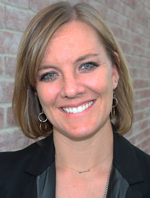AASP Newsletter - June 2017
Spring [Ethical] Cleaning for your Practice
Tim Herzog, EdD, CC-AASP, Reaching Ahead Counseling and Mental Performance
Amber M. Shipherd, PhD, CC-AASP, Texas A&M University – Kingsville
Hillary Cauthen, PsyD, CC-AASP, Texas Optimal Performance & Psychological Services, LLC (TOPPS)


 “Springtime is the land awakening. The March winds are the morning yawn.” – Lewis Grizzard
“Springtime is the land awakening. The March winds are the morning yawn.” – Lewis Grizzard
When Spring comes along, it is typical for many of us to engage in “Spring cleaning;” packing away winter clothes, vacuuming, airing out the house, etc. But in your practice, do you also engage in Spring cleaning? It is a wonderful chance to enhance your own performance as a consultant and to become more ethical. More ethical? Yes, you may think you developed your views in grad school and that you’re done learning “that ethical stuff,” but remaining ethical or becoming more ethical requires ongoing (and honest) self-appraisal. If you haven’t looked in the ethical mirror for a while, make a conscious decision to step up now.
Here are some areas to consider with your ethical Spring cleaning project, aimed especially at practitioners in the United States…
Standard #2 from the AASP Ethics Code (n.d.) addresses Boundaries of Competence. Begin by taking stock of whether you have delved into new areas of interest, techniques, or populations. Maybe you’re doing more with trauma, biofeedback, or teenagers. If so, consider moving beyond those consults with your colleagues and seek out some continuing education. Even if the manner in which you’ve delivered services has changed (e.g., via video-conference), maybe it’s time to take a course. Keep in mind that we don’t know what we don’t know. Taylor and Neimeyer (2016) point out that you can seek out continuing education via several avenues: 1) online education; 2) tailored continuing education (seek out what you need); 3) other continuing education opportunities (e.g., reviewing manuscripts); 4) other disciplines associated with integrated care; and 5) experiential opportunities to learn (e.g., role playing with a mentor rather than just talking about it).
AASP Ethics Code Standard #5 addresses Personal Problems and Conflicts. Many ethical codes address self-care. As members of the sport, exercise, and performance psychology community, would we encourage our clients to be responsive to problems once they’ve arisen? Well…yes, but wouldn’t we even more strongly encourage that they be proactive? Certainly! Likewise, we can be proactive about our own self-care, being optimal performers like many of our clients. As self-care advocate Eleanor Brownn (2014) put it, “You cannot serve from an empty vessel” (para. 6). Whether it is squeezing in your own exercise, nutrition, therapy, doctor’s appointments, etc., proactively engaging in self-care allows us to support our personal needs, and the needs of others. Self-care is a continuous process and as practitioners in a helping field, we are far too often giving more of ourselves and forgetting to care for our needs until our tank is empty. Learn to set limits, and engage in daily acts of self-kindness (if not for you, then do it for your clients).
Standard #24 addresses Conflicts Between Ethics and Organizational Demands and Standard #12 address Third Party Requests for Services. Part of Spring cleaning is recognizing what has changed. Hopefully you are clear with your clients at the front end about what is insurance reimbursable and what is not (Standard #17 Informed Consent), and hopefully you are clear about how transitions will happen as diagnoses are no longer warranted or as a new diagnosis becomes warranted. For example, perhaps you have a client who was a therapy client (if you’re licensed), but problems have ameliorated and so now you’re focused on performance enhancement. Ethics aside, these kinds of transitions don’t mean that you ever disregard the fact that you have a multi-faceted person in front of you (Herzog & Hays, 2012). However, it may be time to stop submitting claims to insurance for them, and to re-categorize your work as “mental skills training” rather than “mental health treatment.” Insurance won’t pay for your client to make more free throws (unless of course that improvement is a consequence of psychotherapy).
Alternatively, as you take inventory, maybe you recognize that you’re not making progress with a given client. Perhaps it’s time to refer out to someone with a specific area of expertise, or simply to a colleague who can offer a new perspective in working with this person. Or perhaps you have clients who have recently turned 18 and it’s time to discuss having them sign a release so you can be in touch with parents for billing, for progress updates, or for both. If you are developing a relationship with a college or high school athletic department, think through the ins and outs of new relationships – provide informed consent so that third parties are aware that you’ll need to keep the specifics of your work confidential (Standard #18).
Standard #17 is about Informed Consent to Practice. It is not uncommon for practitioners to create their documents and have their verbal spiel, without revising or editing this information for years. Perhaps, this is the time to see if there are any changes regarding third party payment or insurance policies. Maybe it’s time to make some alterations to your informed consent documents. Especially as you consider the ever-changing landscape of consulting, because of technology (refer to Standard #26 The Integration of Technology in Professional and Scientific Work within Sport, Exercise and Health Psychology), you may need to make some changes to your paperwork to reflect how you conduct your practice now. Reflect on your current practices and ask a colleague to look over your materials… you can return the favor. And while you’re at it, perhaps Standard #26 is worth some consideration: “It is recommended that AASP members be responsible for understanding and abiding by the laws and ethical guidelines related to service delivery within the states, regions, provinces and countries in which they and their clients are located at the time of service delivery” (AASP, n.d., para. 89). Back to competence, maybe it’s time to take a course centered on technology (e.g., via the Zur Institute).
Last, but not least, with your Spring cleaning, think about being a good colleague and propelling the field of sport, exercise, and performance psychology forward. Maybe you’ve noticed that some colleagues (even friends) calls themselves a sport “psychologist” when you know they are not licensed (see Zito, Herzog, & Shipherd, 2013). Or maybe they overshare about their work via marketing or social media. Reaching out to them is in line with Standard #25 Resolution of Ethical Conflicts. Informally approaching the matter at the front end may initially be uncomfortable, but it helps to keep the field consistent in branding, prevents your colleagues from later being in a whole host of legal trouble and, helps preserve the reputation and professionalism of our field.
In summary, enjoy a little Spring cleaning! It will help you stay ethical while also propelling your practice to new heights. Be your own optimal performer.
References
Association of Applied Sport Psychology (n.d.). Ethics code: AASP principles and standards. Retrieved from: http://www.appliedsportpsych.org/about/ethics/ethics-code/
Brownn, E. (2014, November 2). Self-care in not selfish. Retrieved from http://www.eleanorbrownn.com/blog/self-care-in-not-selfish
Herzog, T., & Hays, K. F. (2012). Therapist or mental skills coach? How to decide. Sport Psychologist, 26(4), 486-499.
Taylor, J. M., & Neimeyer, G. J. (2016). Continuing education and lifelong learning. In J. C. Norcross, G. R. Vanderbos, & D. K. Freedheim (Eds.), APA Handbook of Clinical Psychology: Education and Profession (pp. 135-152). Washington, DC: American Psychological Association.
Zito, M. D., Herzog, T., & Shipherd, A. M. (2013, Spring). What’s in a name? Some ins and outs of representing yourself. Association for Applied Sport Psychology (AASP) Newsletter, 17-18.
More in This Newsletter
Use the links below to read more articles in this issue, or return to the table of contents.- Next article: May Diversity Month Announcement
- Previous article: International Reflections on the Practice of Sport Psychology



